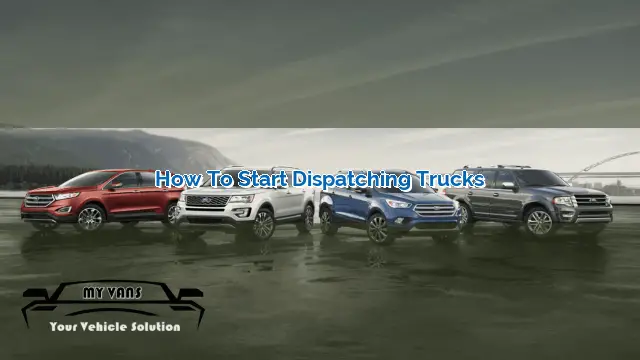
Starting your own truck dispatching business can be a great way to earn a living, but it requires a lot of hard work and dedication. Dispatchers are responsible for coordinating the movement of freight between shippers and carriers. This involves scheduling and tracking loads, negotiating rates, and handling any issues that arise during transport.
Step 1: Get the Required Training
Before you can start dispatching trucks, you will need to acquire the necessary training and knowledge. You can enroll in a truck dispatching training program to learn the ins and outs of the industry. You can also research online to gain more knowledge and experience.
Step 2: Obtain the Necessary Licenses and Permits
As a truck dispatcher, you will need to obtain a Motor Carrier Operating Authority (MC) from the Federal Motor Carrier Safety Administration (FMCSA). You will also need to register with the Department of Transportation (DOT) and obtain a USDOT number. Additionally, you may need to obtain state-specific permits and licenses.
Step 3: Build Your Network of Carriers and Shippers
You will need to establish relationships with carriers and shippers to start dispatching trucks. Reach out to local carriers and shippers to make connections and build your network. Attend industry events and conferences to meet potential clients and partners.
Step 4: Invest in Dispatching Software
Dispatching software can help streamline your business operations and improve your efficiency. Look for software that offers features like load tracking, driver communication, and invoicing.
Step 5: Set Your Rates
You will need to set your rates for dispatching services. Research industry standards and take into account your expenses and desired profit margin. Be sure to negotiate rates with carriers and shippers to ensure a mutually beneficial agreement.
Step 6: Market Your Business
Marketing is important to attract potential clients and grow your business. Create a website, social media pages, and business cards to promote your services. Attend industry events and conferences to network and generate leads.
Step 7: Stay Up-to-Date on Industry Regulations
The trucking industry is heavily regulated, and it’s important to stay current on any changes or updates. Subscribe to industry publications and attend training sessions to stay informed.
Step 8: Provide Excellent Customer Service
As a dispatcher, you are the point of contact between carriers and shippers. Providing excellent customer service is critical to building and maintaining your client relationships. Be responsive, professional, and proactive in addressing any issues that arise.
Step 9: Hire Additional Dispatchers as Needed
As your business grows, you may need to hire additional dispatchers to handle the workload. Look for candidates with experience in the industry and strong communication skills.
Step 10: Continuously Improve Your Operations
Continuous improvement is key to success in any industry. Monitor your business operations and look for areas where you can improve your efficiency and customer service. Implement changes as needed to stay competitive and grow your business.
 MyVans Your Vehicle Solution
MyVans Your Vehicle Solution